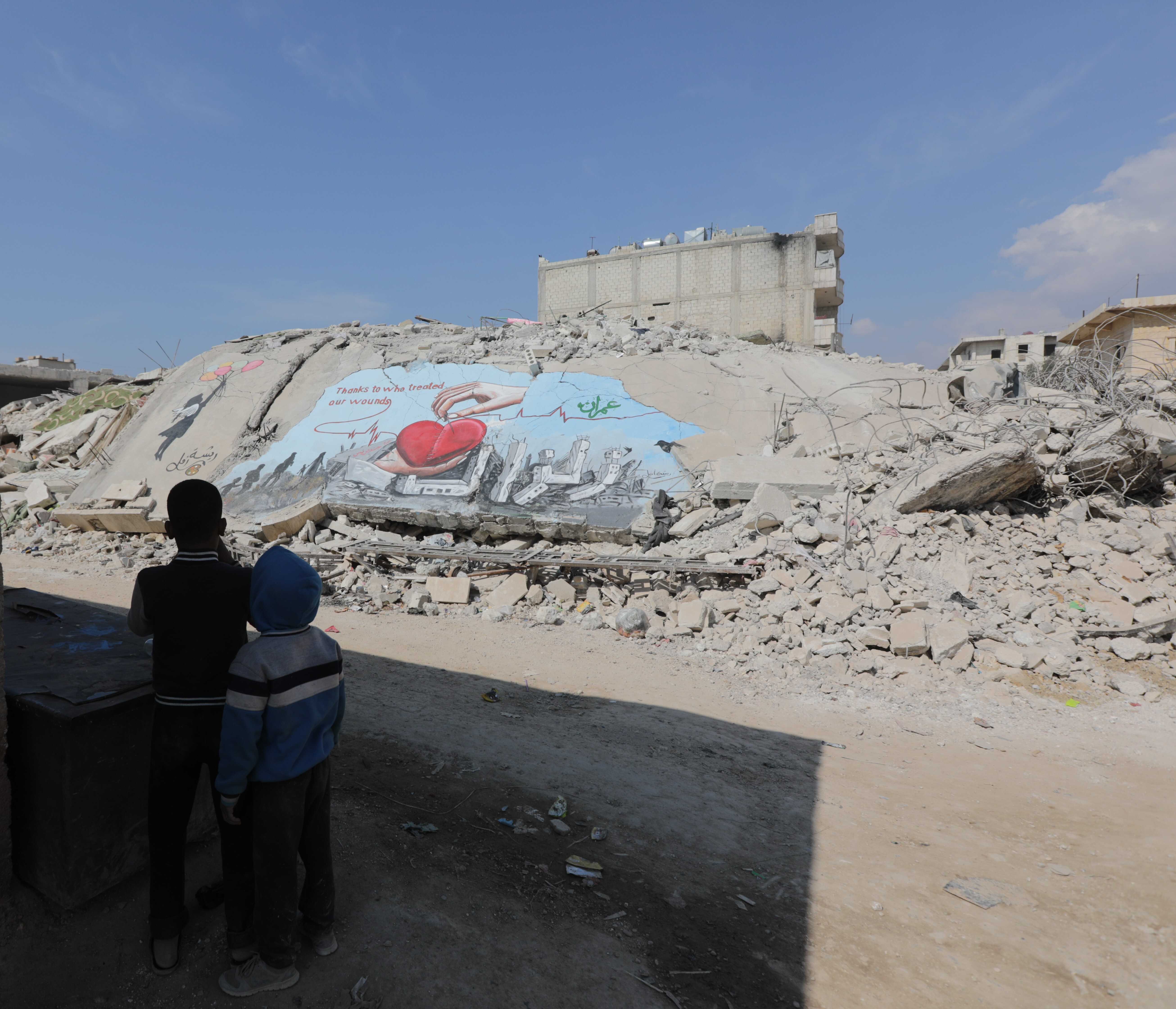A year after the devastating earthquakes causing the death of more than 58,000 people in collapsed buildings, displacing millions as a result of widespread destruction to homes and infrastructure in southeastern Türkiye and northwestern Syria, Médecins du Monde (MdM) International Network is appealing for ongoing assistance to address the extensive needs of the affected population. Despite progress in recovery efforts, the earthquakes have had a profound impact, resulting in the loss of thousands of lives, and affecting millions.
CHALLENGES
Economic hardships have forced many to accumulate debt while striving to recover and rebuild income sources. Unemployment, limited access to basic needs and massive mental health issues and trauma is a health and protection risk for gender-based violence (GBV) – which are increasing. A lack of privacy caused by poor and overcrowded tent/shelter conditions, GBV incidents such as domestic violence, sexual violence and sexual exploitation, abuse and harassment, child labor and early marriage, are likely to increase in the region after a year of the earthquakes. Problems with access to basic needs such as safe water and sanitation facilities, has resulted in the spread of communicable diseases such as scabies, lice, and cholera in the region, as well as in many individuals suffering from physical and mental issues.
In Syria, the reality of people is even more dire due to the compounding effects of the earthquakes and 13 years of conflict, exacerbating recovery difficulties.
MDM ACTION
MdM International Network has been at the very heart of post-earthquake emergency response since day one. Teams have been providing immediate relief to affected communities, including primary health care, sexual and reproductive health, mental health and psychosocial support, protection, and basic WASH through its mobile medical units, a woman and child-friendly safe space in Hatay, and eleven health centers in Aleppo, Idlib, and Hama in northwest Syria (NWS).
Since the very early days after the earthquakes, MdM health teams provided 32,190 essential health consultations to 26,531 earthquake-affected individuals in Hatay province. This includes treatment for chronic diseases such as diabetes as well as communicable diseases such as scabies and lice. Nurses and midwives of MdM have also conducted group health education activities on hygiene and SRH-related topics, providing around 5,000 SRH consultations, as antenatal care (ANC), postnatal care (PNC) and family planning activities and referred patients to MdM gynaecologists available at its safe space. In addition to these, MdM’s psyschosocial support (PSS) counsellors and clinical psychologists provided group and individual counselling to men, women and children exposed to trauma. PSS counsellors conducted PSS group sessions with the participation of more than 7,100 individuals.
SYRIA
In war-torn Syria, where the earthquakes heavily hit on February 6, 2023, MdM provided medical services to beneficiaries affected by the earthquake through the mobilisation of three MMUs, eleven primary health care centres (PHCC) and two community centres, including PHC, SRH, and MHPSS services, as well as nursing and external pharmacy services in PHCCs.
In total, MdM provided over 425,321 health services to more than 200,000 individuals through mobile medical units, primary health care clinics and community centres, as well as case management and dignity, hygiene and maternity kits to earthquake affected populations across Türkiye and Syria.
